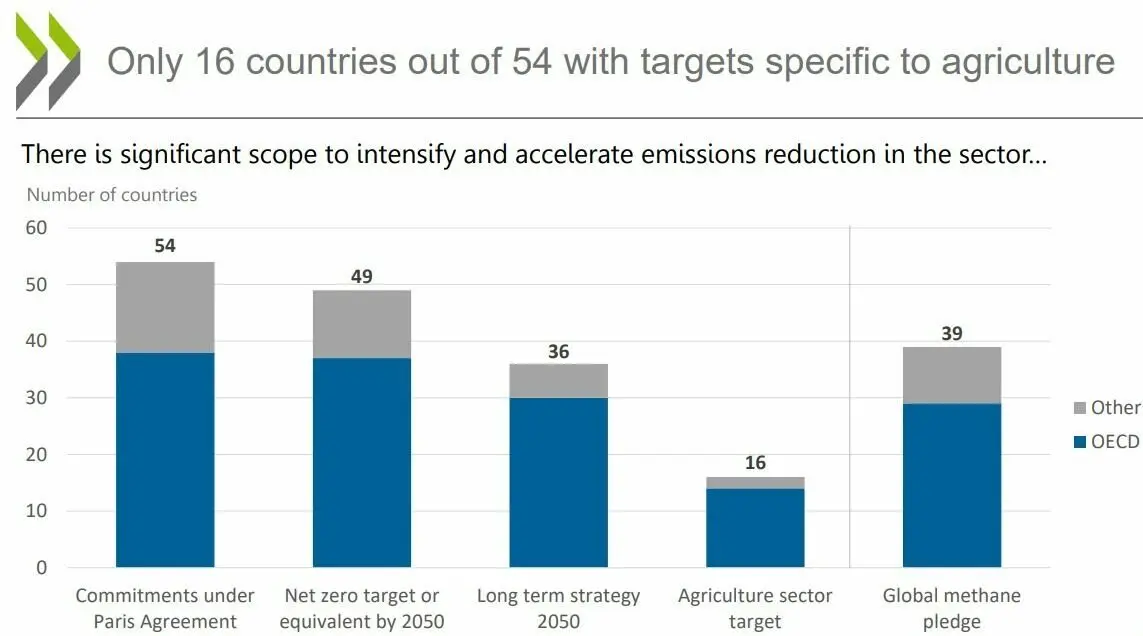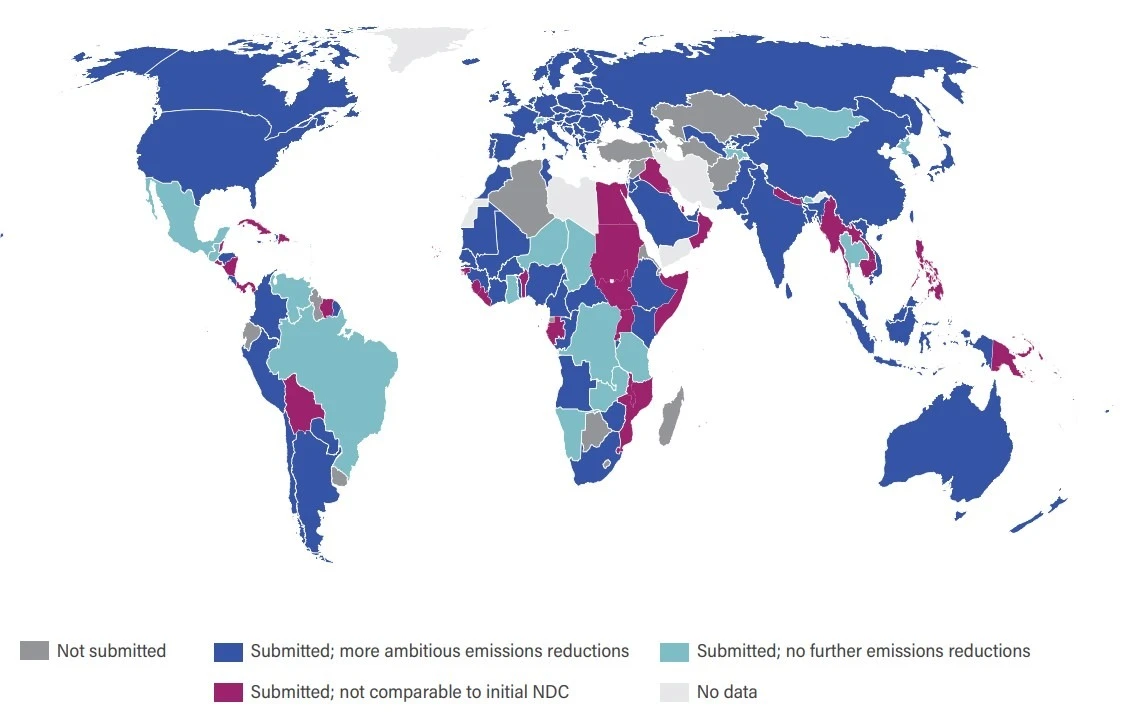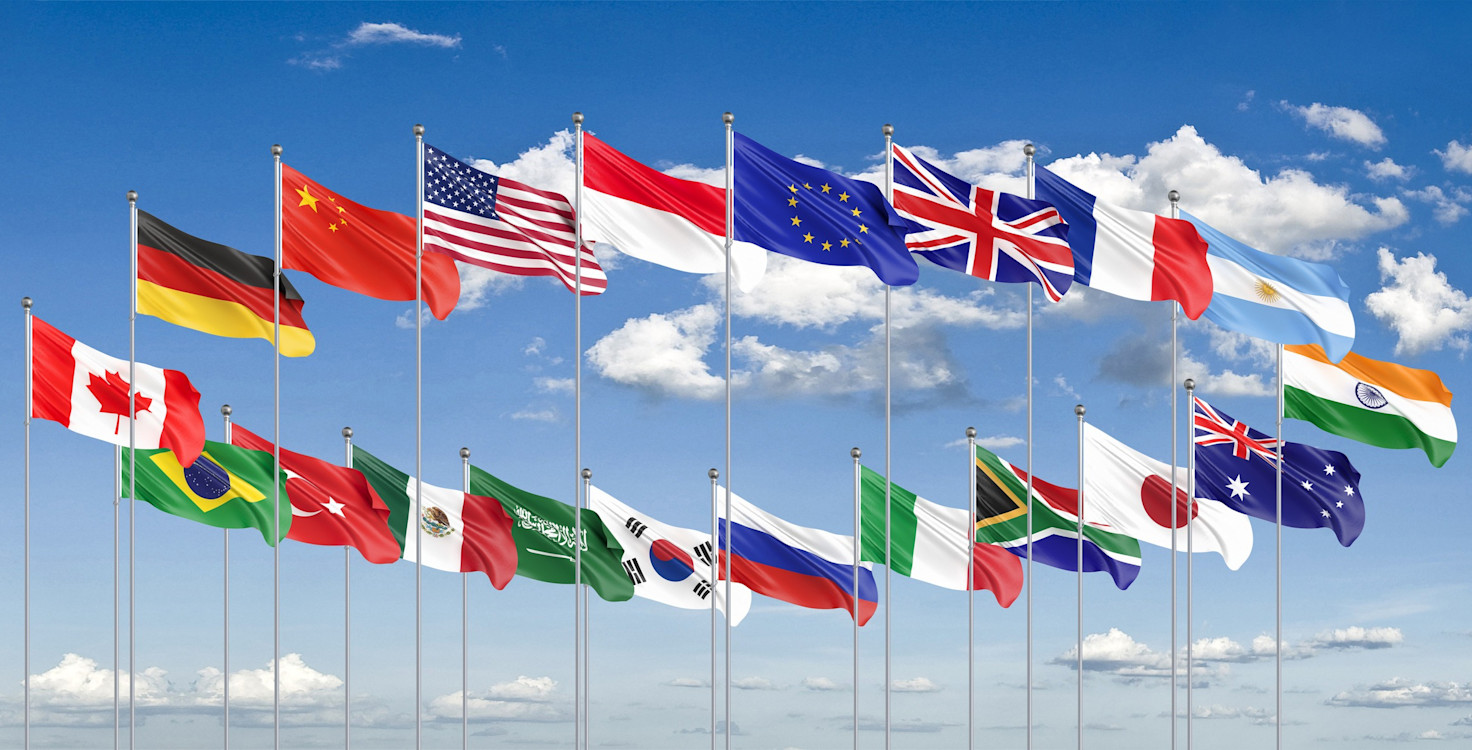World leaders, government delegations, investors, industry representatives and sustainability experts will gather in Egypt this month for COP27. One key outcome from COP26 was the call for countries to update their Nationally Determined Contributions (NDCs) in 2022 to be more ambitious and aligned with the Paris Agreement’s 1.5°C target.
Last year, in the run up to COP26, FAIRR convened an investor statement calling for G20 nations to include agricultural emission reduction targets in their NDCs. The G20 nations are responsible for 80% of global GHG emissions, and therefore play a critical role in reducing emissions across all sectors.
The ‘Where’s the Beef’ statement was supported by investors with $12 trillion in combined assets under management (AUM), who understand that global food system emissions must be targeted and reduced. Food systems represent 34% of total GHG emissions, which makes it the second highest emitting industry. Livestock supply chains alone account for 14.5% of GHG emissions. Despite this fact, many countries are still failing to establish comprehensive strategies and targets for the agriculture sector within their NDCs. This year, there has been a multitude of work on NDCs and recent updates, conducted by the UNFCCC, WWF, GAFF, and OECD among others.

Source: OECD (2022)
Key Takeaways: On Track or COPping Out?
30% of G20 countries have set net-zero target after 2050 (China, Turkey, Russia, Indonesia, India, and Saudi Arabia) Mexico has no net-zero target in place..
65% of G20 countries have set quantified reduction targets for specific sectors covering energy, black carbon, housing and transport.
Up from 0 in 2021, 1 G20 country has now set emissions reduction targets for agriculture.
Indonesia has set a 89% emissions reduction target in agriculture to be met through spatial planning, forest management, renewable energy and waste management.
7 G20 countries updated their NDCs since 2021 and 42% of these updates mention livestock.
Agriculture is not prioritised enough in the G20 countries’ published NDCs, nor in the G20’s political agenda. Part of the challenge facing policymakers working in the agricultural sector is the lack of a pathway or guidance to align the sector with 1.5°C. However, it is positive to see trends that reflect a growing recognition within global NDC commitments on agriculture.

Source: WRI (2022)
We Need More, Faster
According to the most recent UNFCCC analysis, if all NDC pledges were met, global temperatures will rise by 2.5°C by the end of the century leading to catastrophic climate breakdown, emphasising the need for more ambitious NDCs. The UN has noted that methane emissions have caused approximately 30% of global warming to date, and cutting them is the quickest way to slow global warming. The agriculture and livestock sector emits 145Mt of methane a year, making it the largest and most significant sector for methane emissions. Despite this, only 15 of the G20 countries are signatories of the global methane pledge, with Australia joining the pledge earlier this year.
Of these 8 countries, only Mexico, Korea and the USA are exploring strategies to reduce methane emissions;
These solutions include different forage and feed for livestock and improvements in manure management;
No countries have set any quantified targets to address methane emissions from livestock production.
In response to this gap in the market, FAIRR convened an investor statement calling on the UN Food and Agriculture Organisation (FAO) to produce a Global Agricultural Roadmap to 1.5C by 2050. The letter (supported by investors with combined AUM of $17.5 trillion) suggests developing a roadmap similar to the ‘Roadmap to Net Zero’ developed by the International Energy Agency (IEA) for the energy sector.
This type of roadmap would provide the foundation for countries to establish ambitious but feasible strategies and targets for the AFOLU sector and strengthen NDC commitments . Investors are already engaging on the company level, and should continue their engagements in the agri-food sector to ensure that the largest food companies establish ambitious action plans, including emphasis implementing a just transition where needed.
What’s Next?
Investors are showing concern over the lack of policies and strategies for the agriculture sector in NDCs. The current lack of coverage highlights the need for a clearer roadmap to align with the 1.5°C target in the Paris Climate Agreement.
As countries have updated their NDCs, and will again in 2025, calls for the global regulatory landscape to prioritise the AFOLU sector remain essential, so that public and private financial flows needed for a just and sustainable transition can be mobilised. Our current trajectory towards an average of 2.5°C warming does not inspire hope, but more ambitious targets are being made globally, and investors in the FAIRR network continue to advocate for progress.

Source: WRI (2022)
Interested in Finding Out More?
FAIRR will have a presence at COP27, hosting and participating in events relevant to the issues discussed in this blog. To join us in person or virtually, please explore the list of events on our website.
FAIRR insights are written by FAIRR team members and occasionally co-authored with guest contributors. The authors write in their individual capacity and do not necessarily represent the FAIRR view.
